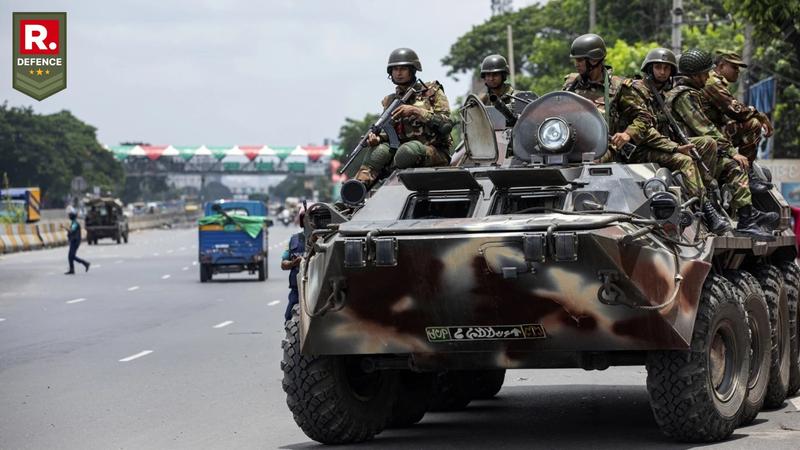Published 18:04 IST, January 7th 2025
Dhaka’s Cancellation of Indian Training Sessions Raises Questions About Its Regional Loyalties
In a surprising decision, Bangladesh has cancelled its judicial officials’ participation in a training program at India’s National Judicial Academy.

Dhaka, Bangladesh - In a puzzling move, Bangladesh has abruptly cancelled the participation of its judicial officials in a prestigious training program at India’s National Judicial Academy in Bhopal. This decision, taken under the directives of its Supreme Court, marks a significant shift in Dhaka’s approach towards bilateral relations with New Delhi, raising eyebrows in India and internationally. While the official reasoning remains vague, the timing of the cancellation—and the broader geopolitical context—cannot be ignored.
India-Bangladesh Relations: From Warmth to Frost?
For decades, India and Bangladesh have shared a partnership grounded in historical and cultural ties, with New Delhi playing a crucial role in Bangladesh’s liberation in 1971. The cancelled judicial training program, a direct outcome of a bilateral agreement signed during Sheikh Hasina’s tenure, underscores a growing unease in the relationship.
India has long been a steadfast ally of Bangladesh, extending support across economic, infrastructural, and capacity-building initiatives. From power-sharing agreements to tackling border security challenges, New Delhi has invested heavily in nurturing a stable and progressive Bangladesh. Yet, recent actions from Dhaka suggest a troubling departure from this trajectory.
Growing Affinity Towards Pakistan
Dhaka’s decision to backtrack on Indian judicial training coincides with a discernible warming of ties between Bangladesh and Pakistan. This shift is seen by many as a betrayal of Bangladesh’s foundational values—values forged in the bloody struggle for independence from a brutal Pakistani regime that committed unspeakable atrocities against Bengalis.

Reports of increased diplomatic exchanges, trade agreements, and shared rhetoric with Islamabad signal a recalibration of Bangladesh’s foreign policy. This pivot raises legitimate concerns, especially given Pakistan’s well-documented role in exporting extremist ideologies and fostering instability across the region.
The Specter of Islamist Fanaticism
Compounding this concern is the alarming resurgence of Islamist fanaticism in Bangladesh’s domestic and foreign policies. The interim government in Dhaka, led by Nobel laureate Muhammad Yunus, appears increasingly inclined to appease Islamist hardliners, many of whom maintain sympathies with Pakistan’s ideological framework.

Instances of religious intolerance, suppression of dissent, and capitulation to extremist demands have surged in recent years. From targeting minority communities to curbing secular voices, Bangladesh risks unravelling its hard-won reputation as a moderate Islamic democracy. The parallels with Pakistan’s trajectory—where extremist ideologies infiltrated politics and governance—are too glaring to ignore.
The cancellation of the judicial training program, ironically funded entirely by India, is emblematic of Dhaka’s growing ambivalence towards its largest neighbour. While India remains steadfast in supporting Bangladesh’s democratic and developmental aspirations, Dhaka’s actions increasingly point to a growing distrust. Contrast this with Pakistan’s opaque overtures, often cloaked in religio-political rhetoric, and the implications become even more concerning.
India’s Concerns and the Path Forward
India’s Ministry of External Affairs has remained diplomatic, reiterating its commitment to fostering a peaceful and progressive Bangladesh. However, beneath the measured tones lies palpable frustration. New Delhi has every reason to question whether its substantial investments in Bangladesh’s growth and stability are being undercut by Dhaka’s inexplicable pivot.

For India, the challenge now is to navigate this shifting landscape without losing sight of the larger regional picture. Bangladesh’s tilt towards Pakistan and its indulgence of Islamist fanaticism threaten not just bilateral ties but regional stability. New Delhi must recalibrate its approach, leveraging its considerable goodwill among Bangladesh’s people to counter these troubling trends.
Bangladesh’s current trajectory is as baffling as it is troubling. By cosying up to Pakistan and emboldening Islamist elements, Dhaka risks alienating its most steadfast ally and jeopardizing its hard-earned progress. For a nation whose independence was built on resisting Pakistani oppression and fostering inclusivity, this shift represents a betrayal of its foundational ideals.
Updated 18:04 IST, January 7th 2025




